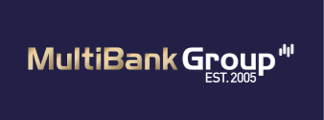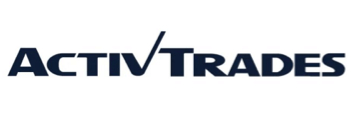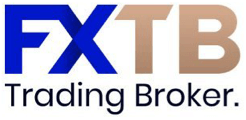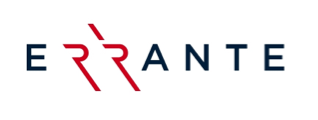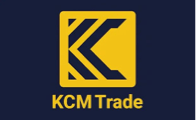IG Markets is one of the world’s most established online brokers, founded in 1974 and regulated across multiple major jurisdictions. Known for its stability, transparency, and institutional-grade infrastructure, IG offers Asian traders access to over 17,000 financial instruments, including forex, indices, commodities, shares, and cryptocurrencies. Operating under the Monetary Authority of Singapore (MAS), IG provides a secure and professional trading environment, supported by advanced platforms, robust education through IG Academy, and decades of market expertise tailored to both retail and professional investors.

Between 60 to 80% of retail CFD accounts lose money.
| Regulators | ASIC FMA NFA DFSA FINMA MAS FFAJ FSCA BMA |
|---|---|
| Minimum Deposit | $0 |
| Leverage | Between 1:1 and 1:200 | Payment Methods | Visa Mastercard Bank Transfer HK FPS PayNow PayPal y Skrill |
IG Markets stands as one of the oldest and most established brokers in the global financial industry. Founded in 1974 in London, IG has expanded its footprint across multiple continents, providing access to a wide range of financial instruments through a solid regulatory framework. In Asia, the broker is particularly known for its reliability, institutional-grade execution, and extensive selection of markets covering Forex, indices, commodities, shares, and cryptocurrencies.
For traders in Singapore and the broader Asia-Pacific region, IG’s proposition combines the credibility of long-standing regulation with an advanced trading infrastructure. Its presence under the Monetary Authority of Singapore (MAS) offers a localized structure designed to meet regional expectations for transparency and investor protection. However, it’s important to note that certain marketing materials, including promotional communications, have not been reviewed by the MAS, as clearly stated on IG’s official website.
From an operational perspective, IG’s strength lies in its breadth rather than extreme cost competition. The broker focuses on a holistic ecosystem: solid execution, diverse instruments, and an integrated educational offering through its proprietary IG Academy. For professional traders and institutions, this foundation allows for scalability and stable access to major and emerging market assets alike. The overall first impression of IG Markets is one of maturity — a platform that prioritizes consistency, trust, and structural integrity over aggressive marketing.
Regulation
IG Markets is regulated by some of the world’s most respected financial authorities. The broker’s international framework covers multiple entities to serve different jurisdictions, maintaining compliance with both local and global financial standards. This multijurisdictional setup ensures that IG clients in Asia can choose between regulatory protections that fit their specific risk appetite and trading objectives.
- Australia: Australian Securities and Investments Commission (ASIC)
- New Zealand: Financial Markets Authority (FMA)
- United States: National Futures Association (NFA)
- United Arab Emirates: Dubai Financial Services Authority (DFSA)
- Switzerland: Swiss Financial Market Supervisory Authority (FINMA)
- Singapore: Monetary Authority of Singapore (MAS)
- Japan: Financial Futures Association of Japan (FFAJ)
- South Africa: Financial Sector Conduct Authority (FSCA)
- Bermuda: Bermuda Monetary Authority (BMA)
Each of these regulatory entities provides a layer of oversight tailored to its region. In the European context, IG adheres to MiFID II requirements, ensuring client fund segregation, reporting standards, and compensation mechanisms. Under ASIC and FMA, IG complies with robust risk management protocols, while in Singapore, it operates through IG Asia Pte Ltd, which holds a Capital Markets Services License from the Monetary Authority of Singapore. However, it is explicitly stated that certain advertisements or promotional materials related to IG have not been reviewed by the MAS — a disclosure that reinforces transparency but also signals the importance of understanding the regulatory limits of each jurisdiction.
Client fund protection is central to IG’s model. Segregated accounts are maintained in top-tier banks, ensuring that client deposits remain distinct from the company’s operational capital. Negative balance protection applies to retail clients, reducing the risk of account deficits in volatile markets. External audits and internal compliance mechanisms further enhance the firm’s financial integrity. Overall, IG’s regulatory structure is among the most comprehensive in the industry, offering Asian traders a combination of local accountability and global security.
Account Opening
The process of opening an account with IG Markets is designed for clarity and speed while adhering to strong compliance protocols. Account creation can be completed online through a multi-step verification process that includes identity and residency validation. In most Asian jurisdictions, including Singapore, verification typically requires a national ID, proof of address, and sometimes a short questionnaire to determine suitability for leveraged products like CFDs.
Once approved, traders can fund their accounts using multiple payment methods, including local bank transfers, credit or debit cards, and e-wallets. IG maintains a transparent funding policy with no internal deposit fees. Withdrawals follow similar simplicity — processed within one to two business days, depending on the payment channel. This efficiency contributes to a seamless onboarding experience, particularly for traders seeking to scale quickly or manage multi-account portfolios.
The account structure at IG reflects the broker’s multi-tiered approach to client segmentation. Retail clients have access to educational tools, demo accounts, and basic risk protections. Professional clients, on the other hand, can apply for higher leverage limits, access to premium support, and personalized trading conditions. Corporate accounts are also available, catering to institutional investors and hedge fund structures that require custom execution and settlement terms. Overall, IG’s onboarding design reflects its dual identity: accessible enough for retail users but robust enough for professional operations.
Account Types
IG offers several account types tailored to different levels of experience and capital allocation. Each account maintains consistent access to IG’s complete range of platforms and asset classes, but fee structures and margin requirements vary depending on the account category. The goal is to align each trader’s cost model with their operational volume and trading frequency.
| Account Type | Minimum Deposit | Ideal For |
|---|---|---|
| Standard CFD | $0 | Retail traders focusing on CFDs and indices |
| Premium | Volume-based threshold | Professional traders with personalized fee structures |
| Demo | $0 (virtual funds) | Traders testing strategies in a risk-free environment |
| Corporate | Based on agreement | Institutions requiring custom conditions |
Each account benefits from identical execution infrastructure — direct market access via IG’s proprietary technology and connectivity to major liquidity providers. The Standard account suits beginners and part-time traders, while Premium and Corporate tiers unlock advanced pricing models, priority service, and lower spreads for high-volume users. This balance between inclusivity and specialization ensures that IG Markets remains relevant for both individual and institutional clients in Asia.
Platforms
IG Markets provides multiple trading platforms to cater to varying trading styles and levels of technical expertise. The flagship web-based platform, IG Trading, integrates market analysis, charting tools, and order management within a single interface. It’s optimized for both desktop and mobile environments, making it suitable for traders who need cross-device accessibility. The layout emphasizes speed and clarity, minimizing unnecessary clutter while maintaining full access to order types, alerts, and portfolio data.
For those preferring industry-standard platforms, IG supports MetaTrader 4 (MT4), a cornerstone for algorithmic trading and Expert Advisor (EA) deployment. The platform’s inclusion allows for backtesting, automation, and integration with third-party plugins. Although IG’s MT4 environment does not replicate the full institutional liquidity model of its proprietary system, it offers stable execution and custom indicator compatibility, which remains valuable for independent strategy developers.
Professional and institutional clients may also access ProRealTime, a sophisticated charting suite designed for high-frequency analysis and technical pattern recognition. Combined with IG’s APIs, ProRealTime opens possibilities for systematic trading with external data feeds. For mobile users, the IG Trading app mirrors the web version’s core features, including watchlists, real-time price alerts, and integrated news feeds. Altogether, IG’s platform diversity allows traders to choose the environment that best complements their workflow — from intuitive simplicity to advanced analytics.
Assets
IG Markets distinguishes itself by offering one of the broadest asset selections in the industry. Clients can trade more than 17,000 markets, covering forex, indices, commodities, shares, options, and cryptocurrencies. This breadth appeals to traders looking for diversification within a single ecosystem, eliminating the need for multiple brokerage accounts. Importantly, IG structures its product availability based on regional regulations, ensuring that Asian clients receive asset access that aligns with their local compliance requirements.
Available Assets
Below you can see which assets are available for trading with IG:
| Asset | Availability |
|---|---|
| Currencies | 98 |
| Real Stocks | ✓ |
| Stock CFDs | ✓ |
| Commodities | ✓ |
| Indices | ✓ |
| Real ETFs | ✓ |
| ETFs CFDs | ✓ |
| Futures | ✗ |
| Options | ✗ |
| Bonds | ✓ |
| Cryptocurrency CFDs | ✓ |
| Real Cryptocurrencies | ✗ |
*Availability of certain assets may vary based on account type, platform, or region.
Forex pairs dominate IG’s offering, with major, minor, and exotic pairs available for both retail and professional traders. Index CFDs include global benchmarks such as the Nikkei 225, Hang Seng, S&P 500, and FTSE 100. Commodities cover both spot and futures-linked contracts across metals, energy, and agricultural products. Share CFDs span thousands of global equities, including listings from the US, UK, Hong Kong, and Japan. Cryptocurrency CFDs, while available in select jurisdictions, are handled under strict risk protocols due to volatility and regulatory constraints.
The essence of IG’s asset architecture lies in liquidity management. During Asia trading hours, the broker’s execution engine aligns with the most active sessions in Tokyo, Singapore, and Sydney, ensuring competitive pricing even outside Western market overlaps. For portfolio diversification, IG also supports ETF and bond CFDs, allowing traders to balance short-term trading with medium-term thematic exposure. The integration of such an extensive catalog under one platform underlines IG’s institutional heritage — a one-stop structure for global market participation.
Spreads
IG Markets operates with variable spreads across its entire product suite. In major forex pairs like EUR/USD and USD/JPY, spreads can start from as low as 0.6 pips during high-liquidity sessions. For indices such as the FTSE 100 or Nikkei 225, spreads are equally competitive, reflecting IG’s deep liquidity relationships with multiple counterparties. The broker’s spread structure is transparent — published live within the trading platform — allowing users to verify real-time conditions before execution.
Spreads Offered
Below a visual representation of IG's spreads across several currency pairs:
*Spreads are variable and may change based on market conditions, account types and trading volumes.
For Asian traders, the effective spread cost depends heavily on timing and session liquidity. The Tokyo and Sydney overlaps typically deliver tighter pricing on JPY and AUD pairs, while off-peak hours may experience slight widening. IG’s internal routing model favors best-execution policies, ensuring that client orders receive the most favorable bid/ask quotes available at the time. This structure benefits both short-term scalpers and longer-term swing traders by maintaining price consistency under varying market conditions.
Spreads on equity CFDs and commodities vary according to the underlying asset’s volatility. For example, gold and oil can have dynamic spreads around macroeconomic announcements, but IG’s depth-of-book access ensures minimal slippage under normal circumstances. In essence, IG’s spread environment is balanced rather than aggressively minimal — designed to offer stability, visibility, and fairness, rather than ultra-thin marketing spreads that may fluctuate under stress.
Other Trading Costs
Beyond spreads, IG Markets applies additional costs depending on account type and product category. Commission-based structures apply primarily to share CFDs, where fees vary by market region. Forex and index CFDs, by contrast, are spread-only instruments with no direct commission. Overnight financing (swap) charges apply when positions are held past market close, calculated based on interbank interest rates and adjusted for the broker’s administrative markup.
Inactivity fees are charged after 24 months of no account activity, a timeframe more lenient than most industry peers. There are no deposit fees, and withdrawal processing remains free unless the client’s bank or intermediary imposes external charges. For professional and corporate clients, customized commission schedules can be negotiated based on monthly trading volume, allowing for cost optimization in high-frequency environments.
Overall, IG’s cost structure maintains transparency. The broker avoids hidden markups and provides a detailed cost breakdown before order confirmation. For Asian traders managing accounts in multiple base currencies (e.g., SGD, JPY, AUD), IG’s internal currency conversion rate applies a modest adjustment, typically around 0.5%. This makes it predictable for those converting funds across regions or maintaining cross-currency portfolios.
Trading Conditions
Trading conditions at IG Markets are structured to accommodate both retail and professional participants. Leverage ratios vary according to jurisdiction, reflecting compliance with each regulatory authority. In Singapore and most Asian regions, maximum leverage for retail traders is capped at 1:200, while professional accounts may access higher ratios depending on eligibility. This conservative approach prioritizes capital preservation and risk management over speculative leverage expansion.
Execution quality is a defining feature of IG. The broker utilizes a hybrid STP/agency model, routing orders through aggregated liquidity pools without operating as a counterparty against clients. This transparency minimizes potential conflicts of interest and ensures that pricing remains market-driven. Slippage statistics are disclosed in IG’s quarterly execution reports, reinforcing its reputation for integrity in order handling. For algorithmic traders, API connectivity and VPS hosting are available for latency-sensitive strategies.
Market access covers continuous trading hours across forex, indices, and select commodities, with pre-market and post-market extensions for equity CFDs. Margin requirements update dynamically according to volatility and exposure levels. Additionally, IG incorporates advanced risk tools such as guaranteed stop-loss orders (GSLOs), which, for a small premium, ensure absolute exit prices even during gapping markets. This feature is particularly useful in Asia, where macro events or low-liquidity hours can trigger sudden market swings.
Is IG Markets a Good Option for Asian Traders?
For Asian traders, IG Markets represents a balanced combination of institutional reliability and localized access. The broker’s regulation under MAS and its dedicated Singapore entity provide a reassuring foundation, especially for traders who prioritize transparency and financial security. Educational resources like IG Academy, combined with multilingual customer support, make the platform approachable for both beginners and professionals across Asia-Pacific.
Execution consistency during regional sessions is another key strength. IG’s trading servers maintain stable performance across Asian liquidity windows, reducing the risk of slippage during Tokyo or Sydney hours. Furthermore, local funding options and region-specific account support allow for smoother onboarding and currency management. Traders in countries such as Singapore, Malaysia, and Indonesia particularly benefit from faster transaction processing through established banking channels.
However, it’s essential to understand the broker’s structural focus. IG is not positioned as a low-cost provider but as a premium, full-service environment. For traders seeking ultra-tight spreads with minimal additional tools, other brokers might appear cheaper. Yet, for those valuing comprehensive market access, professional-grade analysis, and institutional oversight, IG stands as one of the most credible and stable choices available in Asia’s competitive brokerage landscape.
Our Verdict
IG Markets demonstrates the qualities of a mature, institutionally regulated broker that continues to evolve without compromising its core strengths: transparency, range, and execution integrity. Its deep regulatory footprint — spanning ASIC, FMA, NFA, DFSA, FINMA, MAS, FSA Japan, FSCA, and BMA — provides an unmatched global safety net for retail and professional clients alike. In a landscape where many brokers rely on marketing over substance, IG’s stability is its competitive edge.
For traders in Asia, the combination of MAS licensing, localized support, and global liquidity access makes IG a dependable long-term choice. Its infrastructure favors serious traders — those who view consistency, educational content, and execution accuracy as essential pillars of growth. Although IG’s cost profile may not appeal to bargain-seekers, the trade-off is reliability: orders fill predictably, data flows are stable, and risk management tools function as intended.
Institutional clients and algorithmic developers benefit from the broker’s API solutions and transparent market data, while retail participants gain access to one of the most complete trading ecosystems in the world. Across decades of operation, IG has preserved its focus on fair access and client protection, adapting its framework to modern technological standards without losing regulatory discipline.
Ultimately, IG Markets is not designed for impulsive trading — it’s designed for sustainability. For Asian traders aiming to build structured, long-term portfolios within a secure and professional setting, IG represents not just a broker, but a trusted trading partner.
Frequently Asked Questions
Is IG Markets regulated in Singapore?
Yes, IG Asia Pte Ltd is regulated by the Monetary Authority of Singapore (MAS) and holds a Capital Markets Services License. However, promotional materials have not been reviewed by the MAS, as stated in the broker’s official disclosure.
What is the minimum deposit required to open an account with IG?
There is no fixed minimum deposit for the Standard CFD account. Premium and corporate accounts operate under specific agreements based on trading volume or institutional arrangements, offering flexibility to traders of different profiles.
Does IG offer MetaTrader 4?
Yes, IG supports MetaTrader 4 (MT4) for clients who prefer algorithmic trading or custom indicators. In addition, the broker provides access to its proprietary IG Trading platform and the advanced ProRealTime charting suite.
How does IG handle client funds?
Client funds are held in segregated accounts at top-tier banks, fully separated from IG’s operational capital. This segregation ensures that customer deposits remain protected and accessible, even in the event of company-related contingencies.
Can I trade during Asian market hours?
Yes, IG’s servers operate continuously, enabling full access during the Tokyo, Singapore, and Sydney sessions. The broker’s liquidity structure is optimized for regional instruments, ensuring stable execution and reliable pricing throughout Asian trading hours.
Note: Any opinions expressed in this article are not to be considered investment advice and are solely those of the authors. Singapore Forex Club is not responsible for any financial decisions based on this article's contents. Readers may use this data for information and educational purposes only.







